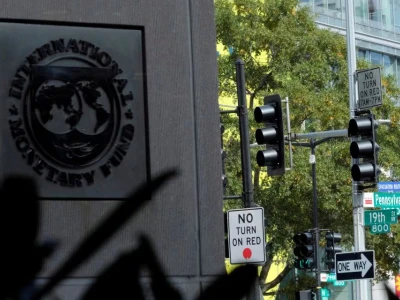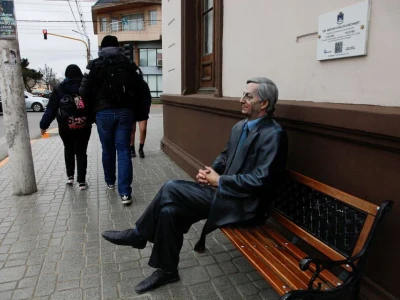
What does Argentina's 'shock therapy' economic package involve?
"There is no money," Milei said in his inaugural speech, as he pledged to create a leaner government structure.
Dec 13 (Reuters) - Argentina's government under libertarian President Javier Milei has unveiled a "shock therapy" economic plan, a radical and likely painful blueprint to stabilize the South American country's economy which faces its worst crisis in decades.
The plan included a devaluation of the peso currency by more than 50%, which took effect on Wednesday, as well as wide-ranging measures for cutting state spending. The austerity moves have been cheered by markets but will likely hurt Argentines.
Here are some of the measures laid out by Economy Minister Luis Caputo, who seeks to tame a fiscal deficit he put at 5.5% of GDP, inflation heading toward 200% and a mountain of debt well over $100 billion with creditors and bondholders.
PESO DEVALUATION, TAX ADJUSTMENTS
Argentina set the official exchange rate at 800 pesos per dollar versus 366 on Tuesday, helping close a gap with parallel markets which have flourished since strict capital controls were imposed in 2019 and where dollars trade for over 1,000 pesos.
The move aims to encourage producers and exporters, and will come alongside temporary tax hikes on some exports and imports. Caputo, however, pledged to remove some taxes once the current "emergency" situation is resolved.
Caputo also pledged to streamline and simplify the approval process for Argentina's current imports system, known as SIRA.
SMALLER STATE, NO PUBLIC WORKS TENDERS
Under Milei's administration the state will shrink by around a third its total workforce, cutting the number of ministries in half to nine and reducing secretariats to 54 from 106.
"There is no money," Milei said in his inaugural speech, as he pledged to create a leaner government structure.
State labor contracts of less than a year will not be renewed, in a measure to block family members from the previous government from retaining privileges, Caputo said.
The government will not hold new tenders for public works and will cancel developments not yet begun, a bid to shift the load of infrastructure projects to the private sector.
Money available for discretionary transfers to provinces will be reduced to the minimum, Caputo added.
LESS SUBSIDIES, TARGETED SOCIAL SPENDING
Caputo vowed to target energy subsidies, which cost the government $12 billion last year, but to strengthen targeted social programs directly handled by the government to ensure help goes to those who need it.
"We are going to reduce energy and transportation subsidies. Today the state artificially maintains very low prices in energy and transportation rates through subsidies," Caputo said.
Government subsidies for media companies will be suspended, as they are a nonessential expense, the minister noted.
Argentina's universal child allowance plan will be doubled and a food card program by the government will be increased by 50%.
"We are without doubt facing the worst legacy in our history, a country where Argentines are increasingly poorer," Caputo said. "We are going to be worse off for a few months than before, particularly in terms of inflation."
Related
Related

IMF backs Milei's reforms, says risks to Argentina's $44 bln loan

Argentine election winner Milei greeted globally by mixed feels

Argentina votes in nail-biter election with libertarian favorite

